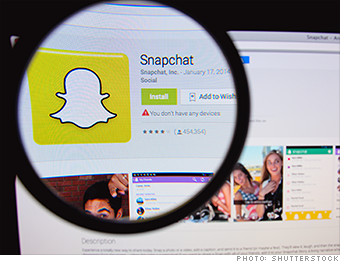

Websites have one-sided, unfair contracts. Apps access phone features that let them spy on you. You're not reading the fine print. But you should.

Snapchat, the temporary photo-sending app, promises heightened privacy and security. You can even send pictures with a self-destructing timer.
But at the very beginning of 2014, the company was hacked and 4.6 million customers' personal information was exposed. That's when everyone discovered the app was secretly taking their phone contact lists.
Snapchat's original terms of service didn't mention anything about uploading your contact list to its servers. Snapchat eventually did add that language to its terms of service in 2012, according to a subsequent federal investigation.
What's more, "disappearing" videos don't actually vanish. They were stored, unencrypted, on phones. Anyone could just plug your device into a computer and play them.
Last week, Snapchat settled with the Federal Trade Commission on charges that it deceived customers.